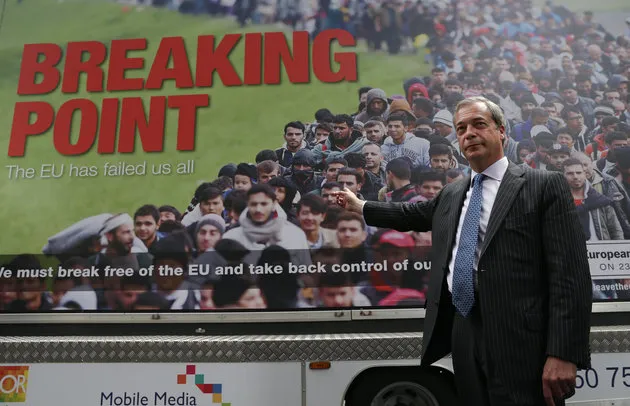- Posted on
- • Politics
Unrestrained, Unsustainable Migration?
- Author
-
-

- User
- aydin
- Posts by this author
- Posts by this author
-

Post-brexit, the UK is embarking on what most cogent economists describe as one of the most surprising acts of economic self harm by a sovereign people. One of the single largest reasons given for the failure of the Pro-European vote was concern over migration.
Whilst it is acknowledged that many of the arguments on the economy and migration were based on hysterical perceptions of what could or would happen if the UK remained in or left the EU, one of the “scariest” data points was the net migration published by the ONS in the final throws of the EU referendum — 330,000, of which about half came from the EU.
During the run up to the referendum, these numbers hardened views on immigration. Instead of considering whether this migration benefits the UK and what the net impact is, the perception that high net inflows is a “bad thing” was allowed to linger.
This is bad enough. What has followed is worse. Instead of continuing to correct the perception, and refer continued xenophobic Brexiteer rants about immigration to the facts, commentators (even Remain supporters) have fallen in line with the assumption that “the people have spoken” and “something must be done”. Brexiteers like Boris Johnson refuse to say how many immigrants they want in order to continue fuelling a successful economy, but they say that 300,000 is too many. Just please don’t ask them to explain why it’s too many.
The facts are that immigration is an indication of the success of an economy, and reflects the need for skilled and unskilled labour alike. The awkward truth is that European migrants are on average better educated than the native UK population.
The net benefit to the UK economy of migration is measured in billions of pounds. Immigrants were 43% less likely to claim tax credits or other support. They were 7% less likely to live in social housing. From 1995 to 2010, the net fiscal contribution of UK natives was negative — meanwhile, immigrants from the EEA contributed 10% more and non-EEA immigrants 9% less (you know, the ones the UK government can already control the numbers because freedom of movement rules don’t apply). This puts lie to the vision of needing more immigration from outwith the EEA unless there is some special pool of talent that UK businesses need that they haven’t yet spotted nor asked for.
The reality is that “uncontrolled migration” is not taking native jobs — certainly if you believe that, why is employment at a record high (perchance the issue might be people in less affluent areas increasingly suffering underemployment rather than unemployment)?
The reality is that the existing migration is sustainable if there is adequate investment in infrastructure to support population growth. The perception that there is not enough housing, are not enough schools and hospitals, and that the country cannot cope is merely a reflection of political choices made over the past 15–20 years. The challenge is that the current political discourse lacks any voice willing to speak up for migration, willing to recognise that if people did vote for Brexit to control migration, it was a false prospectus and had in practice no positive outcome.
The reality is that as a result of the vote for Brexit, the UK has perhaps voted for a smaller population, but is certainly voting for a smaller economy, and a smaller role for itself in the global economy.
Whether Brexit is a managed decline depends on what the political class does next, but the early omens are not good.